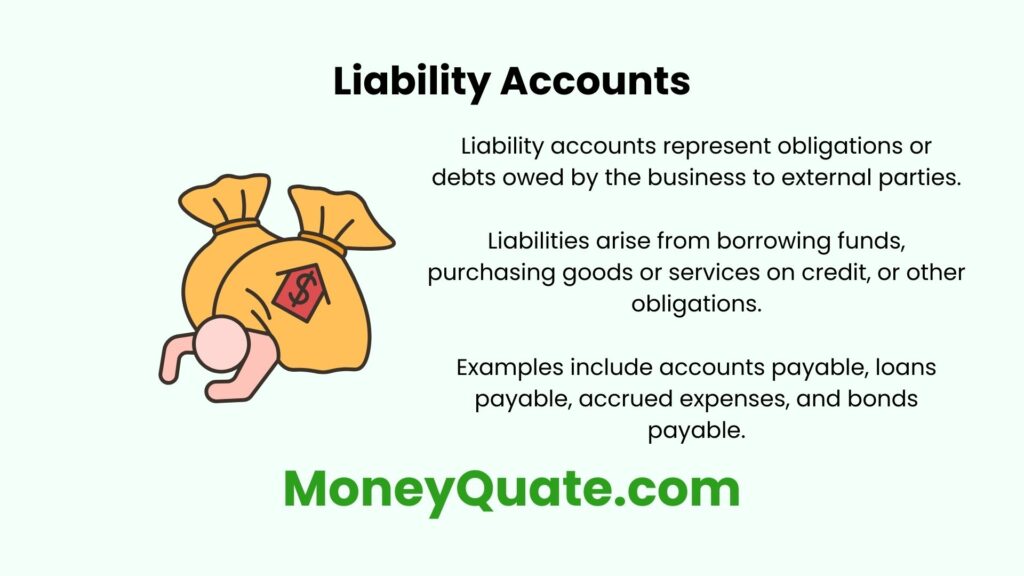Every business has financial commitments – things they owe money for. Think of them like promises to pay. Liability accounts help you keep track of these obligations in your financial record-keeping system.
As accountants, we use liability accounts to identify and organize all the money your business owes to others.
Imagine them as labeled sections in your financial backpack, carrying the weight of your business’s financial commitments.

Contents
What Goes in Liability Accounts?
Not every financial obligation qualifies as a liability. Here are some common types of liabilities that have their own dedicated accounts in the ledger:
- Current Liabilities: These are debts that need to be repaid within a year. Think of them as the short-term promises in your backpack, due soon.
- Examples: Accounts Payable (money owed to suppliers), Salaries Payable (wages owed to employees), Income Taxes Payable (taxes owed to the government).
- Non-Current Liabilities: These are debts that take longer than a year to repay. Imagine them as the long-term promises in your backpack, with a later due date.
- Examples: Loans Payable (money owed to lenders), Mortgages (long-term loans for property).
Keeping Track in the Ledger
Each liability account has a designated page in the ledger. Here’s a simplified breakdown of what you’ll find:
- Account Name: Clearly states what the liability is, like “Accounts Payable” or “Loans Payable.”
- Date: Records the date of any transaction related to the liability (borrowing money, paying a bill, etc.).
- Credit: Shows any increases in the liability amount (like taking out a loan).
- Debit: Shows any decreases in the liability amount (like paying off a supplier).
- Balance: Represents the current amount owed, calculated by subtracting debits from credits.
Why Liability Accounts Matter?
Liability accounts provide valuable insights for businesses in several ways:
- Financial Health: Understanding your liabilities helps assess your business’s overall financial health. Too much weight in your backpack can slow you down!
- Debt Management: Knowing your outstanding debts helps you plan for repayments and avoid financial strain.
- Creditworthiness: A strong track record of managing liabilities can improve your business’s creditworthiness, making it easier to secure loans in the future.
Real-Life Example
Let’s see a liability account in action:
Account Name: Accounts Payable
| Date | Description | Credit | Debit | Balance |
|---|---|---|---|---|
| Oct 1 | Opening Balance (owed to suppliers) | $5,000 | – | $5,000 |
| Oct 10 | Purchased Supplies on Credit | $2,000 | – | $7,000 |
| Oct 15 | Paid Partial Payment to Supplier | – | $1,000 | $6,000 |
The Backpack Takeaway
Liability accounts might seem like a simple recordkeeping tool, but they play a vital role in managing your business’s financial obligations.
By organizing and tracking your debts, you can make informed financial decisions, avoid overspending, and keep your business moving forward with a lighter backpack!
So next time you hear about liability accounts, remember – they’re not just about recording debts, they’re about keeping your business financially healthy and prepared for the future!